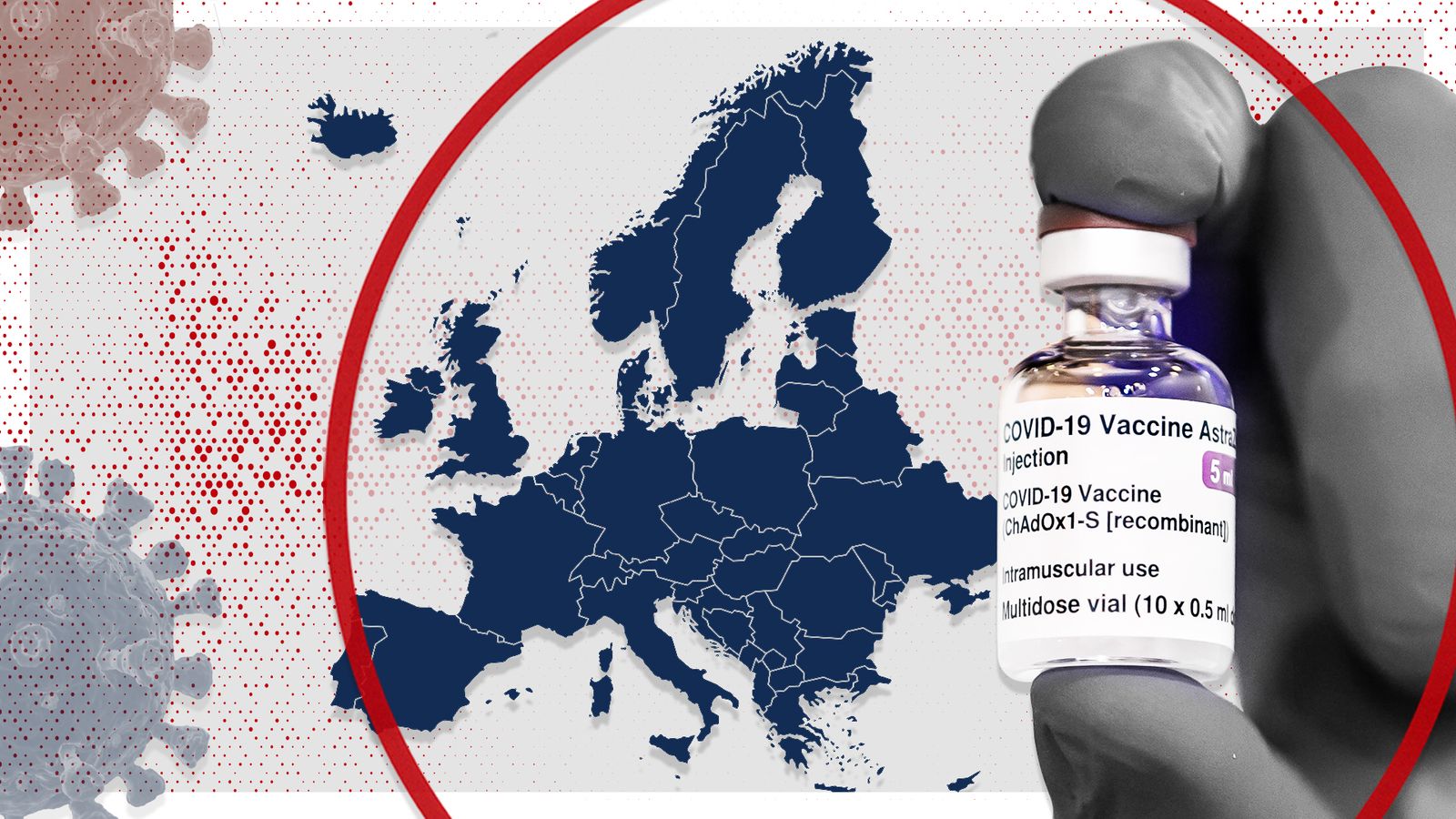Just as the European Commission was confirming its plans to tighten the rules around vaccine exports, the Belgian prime minister was talking, just down the road.
He announced that the country would be going back into a sort of lockdown for four weeks – schools closing, non-essential shops open by appointment only, hairdressers shutting their doors. Stuff with which we are wearily familiar.
The two briefings weren’t designed to go together, but you could see the link. In Belgium, as in much of Western Europe, the number of infections is rising on the back of the so-called British variant.
What Europe needs, just like the UK, is an effective, efficient vaccine rollout. Europeans have watched enviously as the number of adults who have had a first dose across the Channel heads towards 50%.
Across the European Union, the equivalent figure now stands at just over 11%.
Ask any diplomat, from pretty much any country, why there’s such a stark difference, and they’ll talk about the shortfall in doses delivered by AstraZeneca. The company was originally supposed to deliver between 80 and 120 million doses by the end of March.
That was then revised down to 40 million, or thereabouts. In fact, according to the latest data I’ve seen, just over 17 million doses have been sent to the EU – vastly short of what had been agreed initially.
Please use Chrome browser for a more accessible video player
If you factored in another 70 million, or even 100 million doses, as per the original contract, into the European vaccine rollout, it would look a lot, lot brighter.
The company maintains that it has done its best to fulfil the order but has had to deal with production delays. The EU response to that is to query why AstraZeneca has managed to fulfil its contract with the UK with so much more success than its contract with the EU.
The company points to the UK signing its contract earlier and offering initial funding. The EU says those are not excuses. And so it goes on.
This has often been portrayed as a row between Brussels and Westminster, but in reality, the EU’s gripe is not with the British government, or with Pfizer, Moderna or anyone else.
It is, very specifically, with AstraZeneca, and with the idea that the company’s vaccines manufactured in the UK have never been shared with Europe, while around 10 million doses have been exported from the EU to the UK.
“Europe has taken every step to act fairly and responsibly, mindful of our global leadership role, since the start of the pandemic,” said the European Commission’s vice president Valdis Dombrovskis.
“If a country which has a large production capacity restricts its own exports of vaccines or vaccine substances, either by law of by other means, it may be appropriate to consider whether exports of vaccines to this country are justified.”
(Translation: the UK makes lots of vaccines, and keeps them to itself. Why are we sending you vaccines that are made on our land? Maybe we shouldn’t.)
There are three things happening here. Firstly, the European Union is very publicly flexing its muscles, telling the world – and its own citizens – that it’s going to get tough. For a watching public who are fed up with the slow rollout, that’s probably welcome.
Secondly, it’s a very clear message to AstraZeneca. While these new rules could apply widely (and Mr Dombrovskis would not rule out using them against any companies) the fact is that, across the EU, officials speak warmly about their dealings with Pfizer and Moderna.
It is AstraZeneca that gets the flak, and that company which is being targeted here. The idea of it continuing to exports vaccines from European facilities to the UK, while failing to come anywhere near to fulfilling its own contract with the EU, seems to have been greeted with such visceral irritation that it has united European nations in a way that few other things have done.
And thirdly, this is a warning that if things don’t improve fast, then the EU might reach for more powers – including, potentially, the ability to seize vaccines outright; that it reserves the right to go further.
Decisions will be taken on a “case by case basis” was the message, which is at once imprecise and vague, but also vaguely threatening. What remains unanswered is what this will achieve. But the stakes have been raised, and so has the political temperature.






















